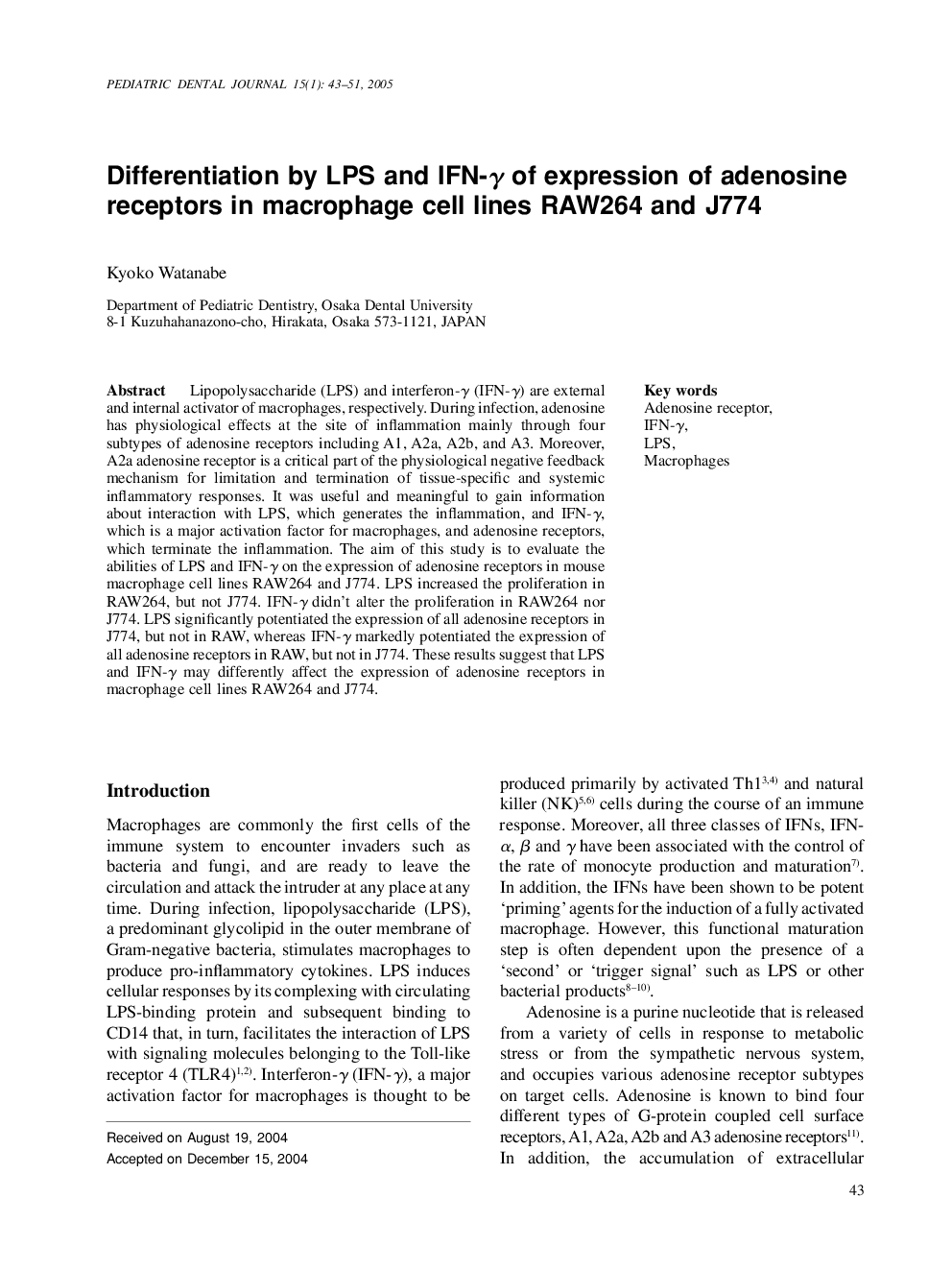| Article ID | Journal | Published Year | Pages | File Type |
|---|---|---|---|---|
| 9219938 | Pediatric Dental Journal | 2005 | 9 Pages |
Abstract
Lipopolysaccharide (LPS) and interferon-γ (IFN-γ) are external and internal activator of macrophages, respectively. During infection, adenosine has physiological effects at the site of inflammation mainly through four subtypes of adenosine receptors including A1, A2a, A2b, and A3. Moreover, A2a adenosine receptor is a critical part of the physiological negative feedback mechanism for limitation and termination of tissue-specific and systemic inflammatory responses. It was useful and meaningful to gain information about interaction with LPS, which generates the inflammation, and IFN-γ, which is a major activation factor for macrophages, and adenosine receptors, which terminate the inflammation. The aim of this study is to evaluate the abilities of LPS and IFN-γ on the expression of adenosine receptors in mouse macrophage cell lines RAW264 and J774. LPS increased the proliferation in RAW264, but not J774. IFN-γ didn't alter the proliferation in RAW264 nor J774. LPS significantly potentiated the expression of all adenosine receptors in J774, but not in RAW, whereas IFN-γ markedly potentiated the expression of all adenosine receptors in RAW, but not in J774. These results suggest that LPS and IFN-γ may differently affect the expression of adenosine receptors in macrophage cell lines RAW264 and J774.
Related Topics
Health Sciences
Medicine and Dentistry
Dentistry, Oral Surgery and Medicine
Authors
Kyoko Watanabe,
